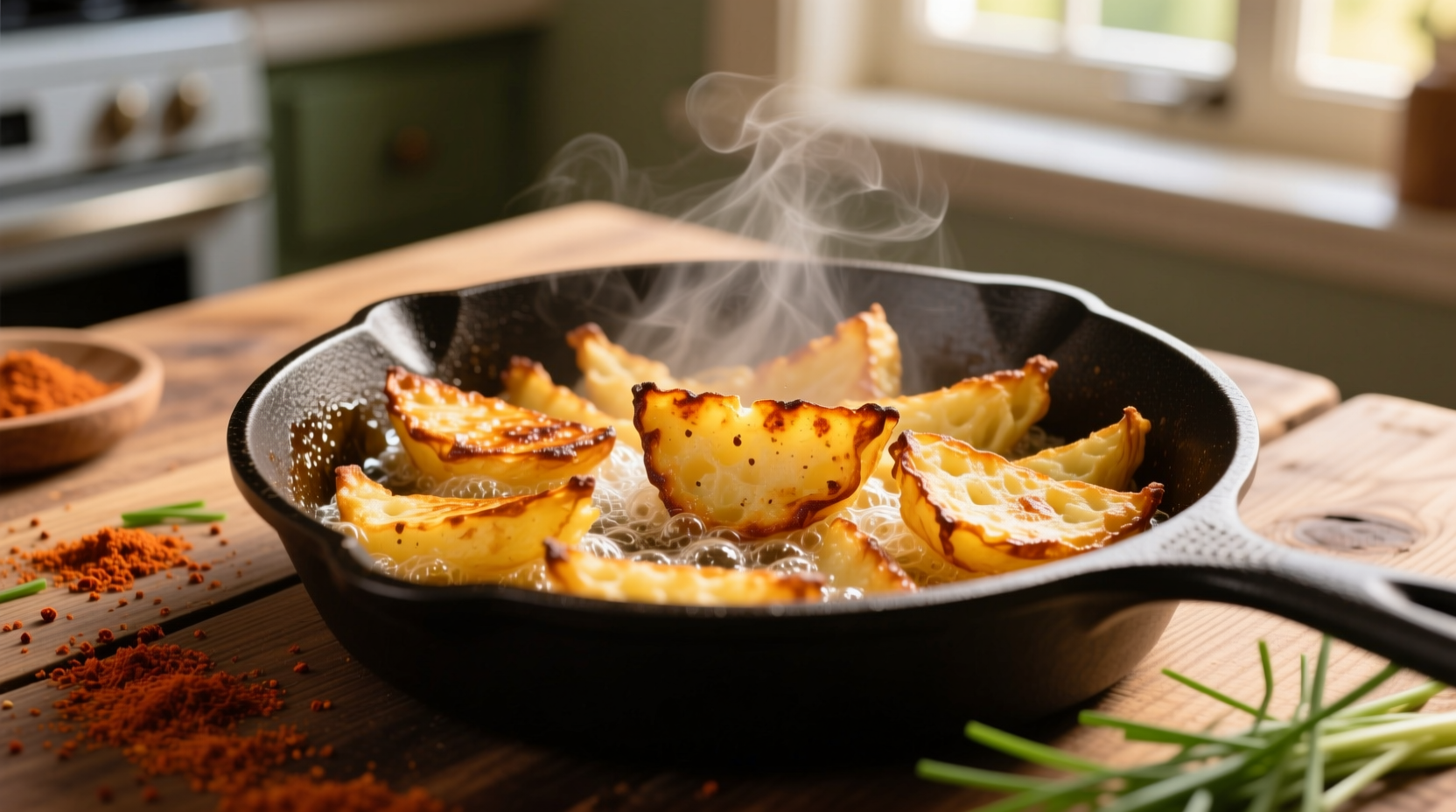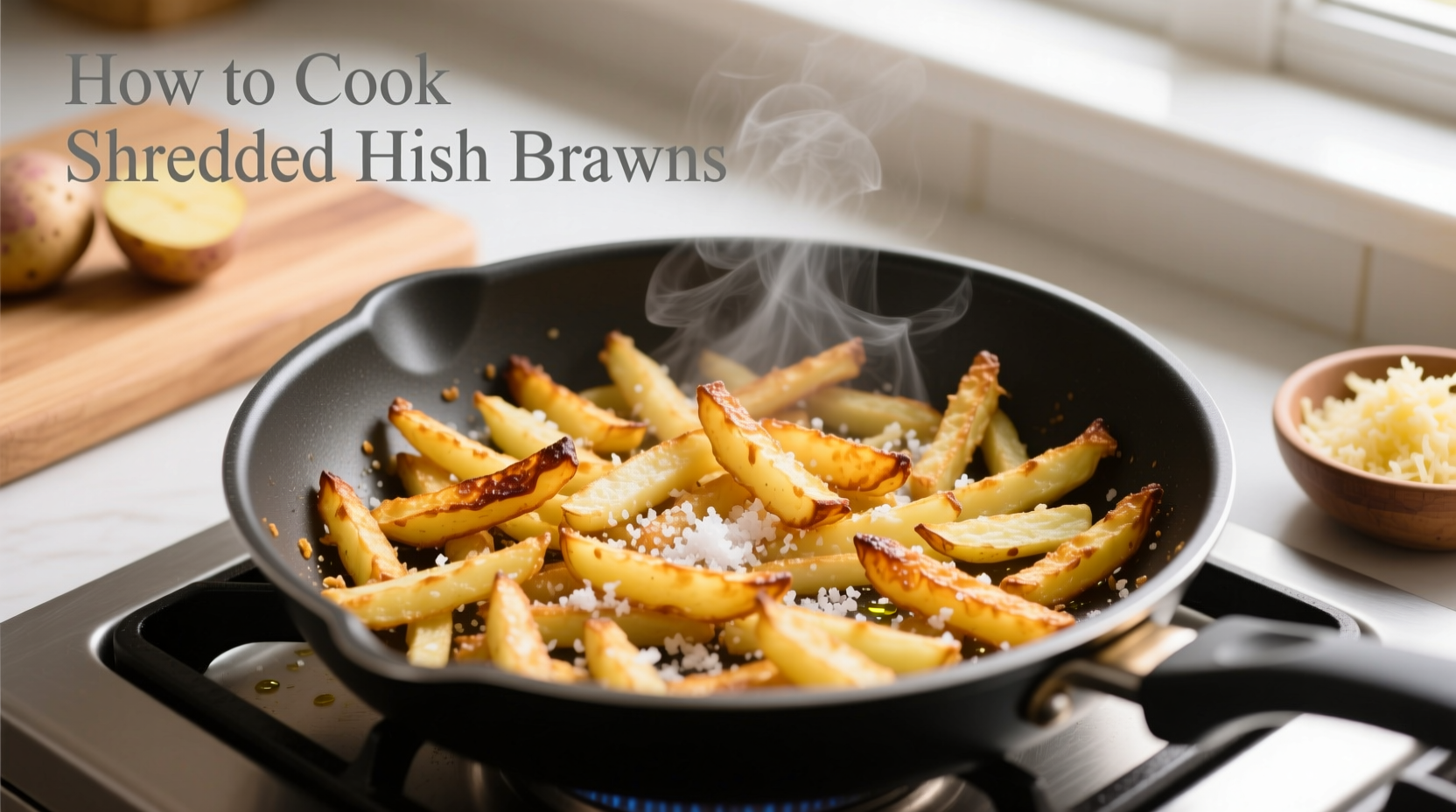If you've ever struggled with soggy, pale, or unevenly cooked hash browns, you're not alone. Many home cooks face this common breakfast challenge. The key to achieving restaurant-quality shredded hash browns starts with understanding moisture control and proper heat management—two critical factors that determine whether your potatoes turn out crispy or disappointing.
Why Moisture Control Makes All the Difference
Potatoes contain approximately 80% water, which is the primary enemy of crispy hash browns. When excess moisture hits hot oil, it creates steam instead of the searing effect needed for browning. Professional chefs consistently emphasize moisture removal as the non-negotiable first step.
According to food science research from the Culinary Institute of America, "Potato starch gelatinizes between 140-155°F (60-68°C), creating a sticky texture that traps moisture. Proper draining and drying prevents this undesirable texture and promotes even browning."
Essential Equipment Checklist
You don't need specialized tools, but these items make a significant difference:
- Box grater or food processor with shredding disc
- Clean kitchen towel or cheesecloth
- Cast iron or heavy-bottomed skillet (10-12 inches)
- Metal spatula for flipping
- Bamboo or silicone tongs for handling
| Cooking Method | Best Oil Temperature | Cooking Time | Texture Result |
|---|---|---|---|
| Cast Iron Skillet | 375°F (190°C) | 8-10 minutes | Crispiest exterior, golden brown |
| Non-Stick Pan | 350°F (175°C) | 10-12 minutes | Good crispness, less browning |
| Air Fryer | 390°F (199°C) | 12-15 minutes | Evenly crispy, less oily |
Step-by-Step Cooking Process
1. Potato Selection and Preparation
Russet potatoes work best for shredded hash browns due to their high starch content and low moisture compared to waxy varieties. Avoid Yukon Gold or red potatoes for this application—they contain more sugar and moisture, leading to uneven browning.
Professional tip: Keep potatoes submerged in cold water for 10-15 minutes after shredding to remove excess surface starch, then drain thoroughly.
2. Moisture Removal Technique
This is the critical step most home cooks skip or do incorrectly:
- Place shredded potatoes in a clean kitchen towel or cheesecloth
- Gather the edges and twist tightly over the sink
- Squeeze with firm, consistent pressure for 30-45 seconds
- Repeat if necessary until minimal liquid emerges
The USDA Food Safety and Inspection Service recommends proper moisture control not only for texture but also for food safety, as excess moisture can create an environment where bacteria thrive during cooking.
3. Heating Your Cooking Surface
Preheat your skillet for 3-5 minutes over medium-high heat. Test readiness by sprinkling a few drops of water—if they sizzle and evaporate immediately, you've reached the optimal temperature. Professional chefs recommend using clarified butter for superior browning, but avocado oil (smoke point 520°F/270°C) works well for those avoiding dairy.
4. Cooking Without Compromising Crispness
Add potatoes to the hot oil in an even 1/2-inch layer. Here's where most mistakes happen:
- Do not press down—this squeezes out precious moisture and prevents crisp edges from forming
- Resist flipping too early—wait until edges turn golden brown (about 4-5 minutes)
- Flip in sections if needed, using your spatula to maintain the patty shape
- Cook second side for 3-4 minutes until equally golden

Troubleshooting Common Problems
Soggy Hash Browns
Cause: Inadequate moisture removal or cooking temperature too low
Solution: Squeeze potatoes more thoroughly and ensure oil reaches proper temperature before adding potatoes
Uneven Browning
Cause: Inconsistent heat distribution or flipping too frequently
Solution: Use a heavy-bottomed skillet and allow proper time for browning before flipping
Sticking to the Pan
Cause: Insufficient oil or pan not hot enough before adding potatoes
Solution: Ensure proper preheating and use adequate oil—about 2 tablespoons for a standard batch
Advanced Techniques for Perfect Results
For restaurant-quality results, try these professional methods:
- Double-fry method: Par-cook shredded potatoes at 325°F (163°C) for 3 minutes, drain and cool, then finish at 375°F (190°C) for perfect crispness
- Seasoning timing: Add salt after cooking to prevent drawing out moisture during the cooking process
- Temperature consistency: Use an infrared thermometer to maintain consistent oil temperature
Serving and Storage Recommendations
Serve immediately for best results, as hash browns lose crispness quickly. If you must hold them, place on a wire rack in a 200°F (93°C) oven for up to 15 minutes. For leftovers, store in an airtight container in the refrigerator for up to 3 days.
When reheating, avoid the microwave which creates sogginess. Instead, use a skillet over medium heat with a small amount of oil, or an air fryer at 375°F (190°C) for 3-4 minutes.
Common Questions About Cooking Shredded Hash Browns
Understanding the context boundaries of different cooking methods helps you adapt techniques to your specific kitchen setup and preferences. While cast iron produces the crispiest results, not everyone has this equipment. Similarly, certain techniques work better for small batches versus family-sized portions.











 浙公网安备
33010002000092号
浙公网安备
33010002000092号 浙B2-20120091-4
浙B2-20120091-4